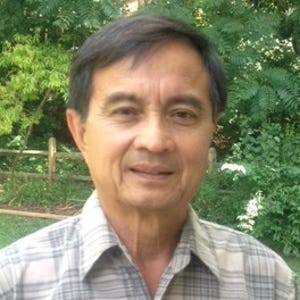Peang-Meth: Looking for a peaceful transfer of power in Cambodia
Pacific Daily News | 19 June 2016
Cambodia
was promised peace, justice, human rights and a system of liberal
democracy, among other things, in the October 1991 Paris Peace
Agreements signed by 18 governments (Australia, Brunei, Cambodia – the
four warring Cambodian factions – Canada, China, France, India,
Indonesia, Japan, Laos, Malaysia, Philippines, Singapore, Thailand,
Soviet Union, United Kingdom, United States, Vietnam), witnessed by
representatives of the non-aligned movement, the UN secretary-general
and his special representative.
Today, CQ 25 years later, and 23
years after Cambodia’s adoption of a 1993 Constitution stipulated as the
“Supreme Law of the Kingdom” that mirrored the PPA’s promises, Prime
Minister Hun Sen told the European Union not to “scare and threaten me”
with its resolution to review its $461 million in aid to Cambodia, and
told UN Secretary-General Ban Ki-moon there would be “no dialogue” with
the opposition party as he requested, to ease heightened political
tensions.
I
am again amazed that this year, as in the past, Cambodian expatriates
are busily petitioning PPA signatories to revive the Agreements. But the
world has moved on since 1991, and I have not seen any signatory power
that has not found it in its interest to engage with the Hun Sen
government in the face of the opposition’s insufficient credibility as
an alternative. We must remember the adage, “In politics there is no
permanent enemy nor permanent friend, only permanent interest.”
Today,
as more Cambodians have become publicly fearless in demanding a change
to the status quo, Hun Sen, initially installed as Cambodia’s prime
minister in 1985 by Vietnam’s invading troops, declared he has no plans
to leave office. Yet, he knows in free and fair elections voters would
not re-elect him to another term. He must harbor some desire to improve
on the legacy he will leave to posterity.
A young Khmer blogger and cofounder of “Politikoffee,” a platform for weekly youth debate and discussion on politics and other issues, Ou Ritthy, warned that as the people ramp up their demands for more just, equitable, and transparent electoral processes for the June 2017 commune elections and the July 2018 general elections, they are likely to rise up against Hun Sen’s tactics to disrupt and break up the opposition party. A “big confrontation will happen.”
But Ritthy thinks that potentially
violent protests can be avoided by Cambodia’s King Sihamoni, opposition
leaders Sam Rainsy and Kem Sokha, and the international community
working together for a peaceful “transfer of power.” Ritthy’s call
aligns with my plea long ago to strategize Hun Sen’s political exit with
face-saving. In a powerful assertion, Ritthy told me that the “Khmer
problem” is not any external actor, but the Khmer themselves. He urged
Khmer to do some serious soul searching.
I
believe there is no problem without a solution; that imaginative,
creative, persistent actions yield productive results. I like Lord
Buddha’s preaching: “We are what we think… With our thought we make the
world.” While a Western observer of Khmer politics lamented that Khmer
cannot seem to rid themselves of their “dependency syndrome,” Ou Ritthy
advises: “Stop crying for help and pointing fingers at others while we
Khmer keep fighting one another in our own home.”
Half a decade
ago, I wrote that the UN and the PPA signatory governments can’t change
Cambodia. Only Cambodians can bring about the change they want to see.
Gaffar
Peang-Meth, Ph.D., is retired from the University of Guam where he
taught political science for 13 years. He now lives in the U.S. mainland
and can be contacted at peangmeth@gmail.com.



Dear Dr. Peang Meth,
ReplyDeleteI beg to disagree with you.
You seem to put the blame squarely on the facts that Khmer problems are caused by Khmers only.
You fail to recognize and acknowledge, for example at least for the last thirty years or so the root causes of the Khmer problems have been systematically created by Hanoi's leaders.
From the creations of the Khmer Vietminhs to the puppet Hun Sen's regime, the Hanoi expansionists are able to create and manage a group of sold-out Khmers, as Hanoi's third hand to fight the true Khmers.
Therefore, the Khmer people alone CANNOT solve the Viet - originated Khmer problems.
Although you do not have hope with the signatories of the Paris Peace Accords, in most Khmers' views, Khmer problems can only be solved synergetically with the Signatories.
Respectfully yours